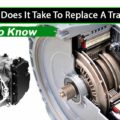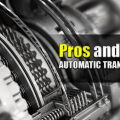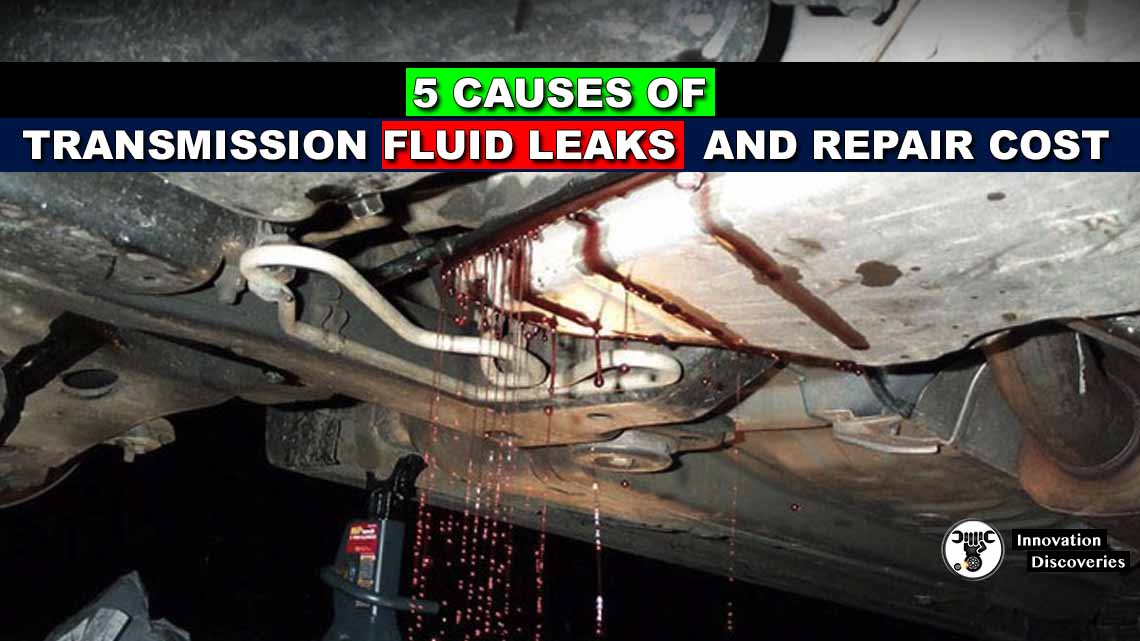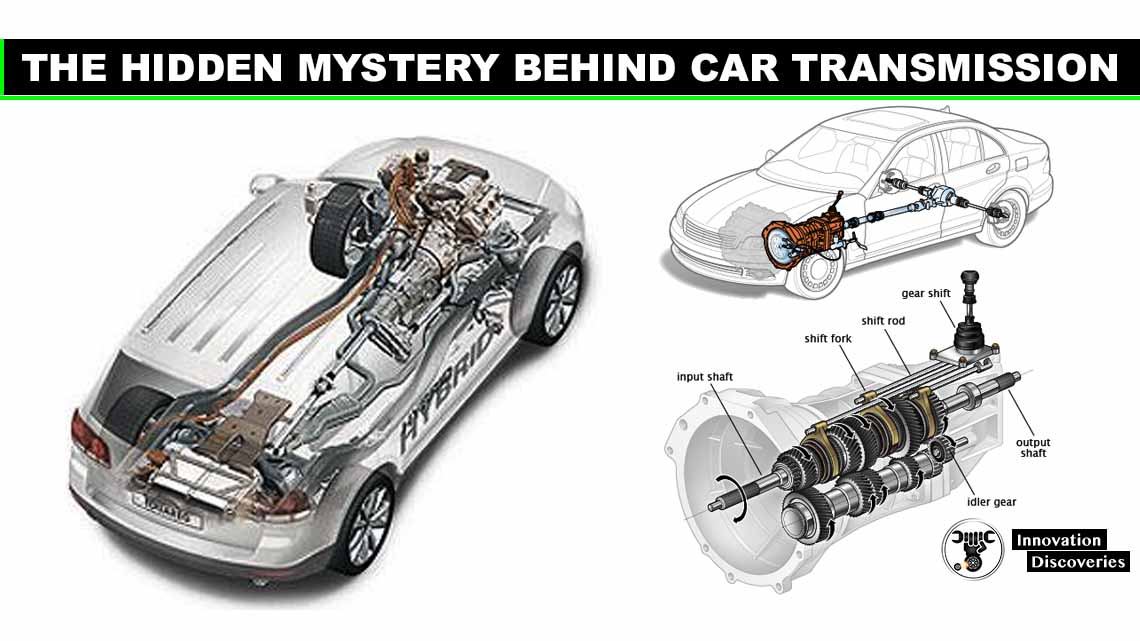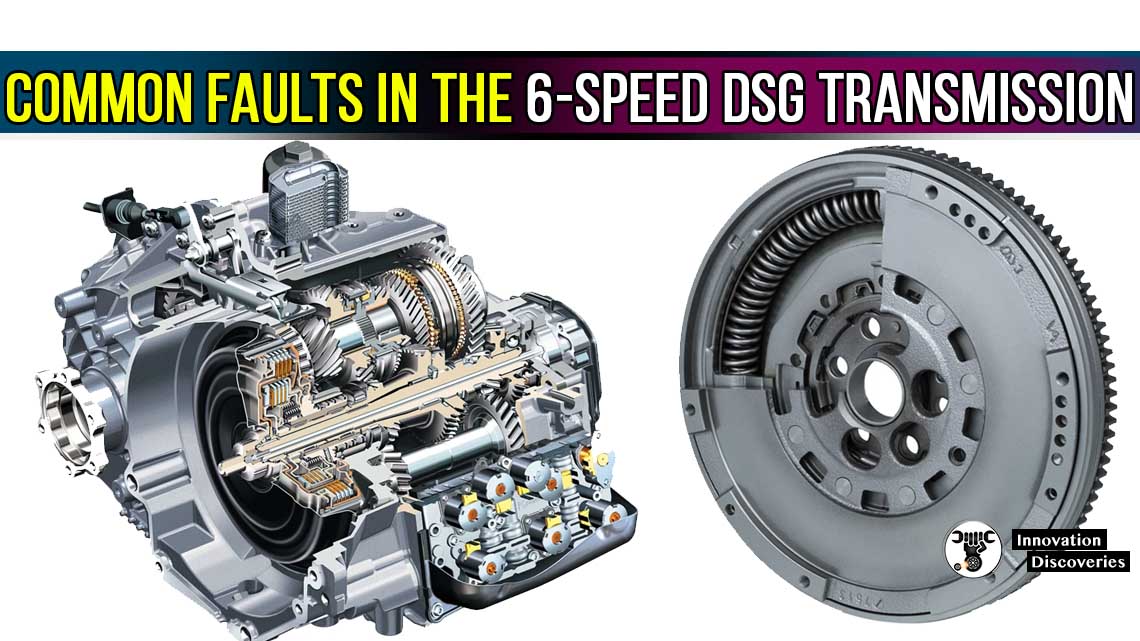
Introduction:
The Direct Shift Gearbox (DSG) is a type of dual-clutch transmission system developed by Volkswagen Group. It is designed to provide quick and seamless gear shifts for enhanced performance and fuel efficiency. The 6-speed DSG transmission, in particular, has gained popularity for its smooth operation and sporty driving experience. However, like any mechanical system, it is not without its faults.
In this article, we will explore some common issues that can occur in the 6-speed DSG transmission and discuss them in detail.
Read More:
- SLIDING MESH GEARBOX – MAIN PARTS, WORKING AND APPLICATION
- FULL NOTES ON SYNCHROMESH GEARBOX
- HOW TO FIX AN AUTOMATIC TRANSMISSION THAT IS SLIPPING
- TORQUE AND BHP EXPLAINED
What Is DSG Transmission System?
Before diving into the faults, let’s briefly understand how the DSG transmission system works. The DSG transmission combines the advantages of both manual and automatic transmissions. It uses two separate clutches to engage odd and even gear sets simultaneously.
This allows for rapid and seamless gear changes, resulting in smooth acceleration and improved efficiency. The transmission’s control unit, known as the mechatronic unit, regulates the operation of the clutches and gear shifts based on driver inputs and various sensors.
Common Faults in the 6-Speed DSG Transmission
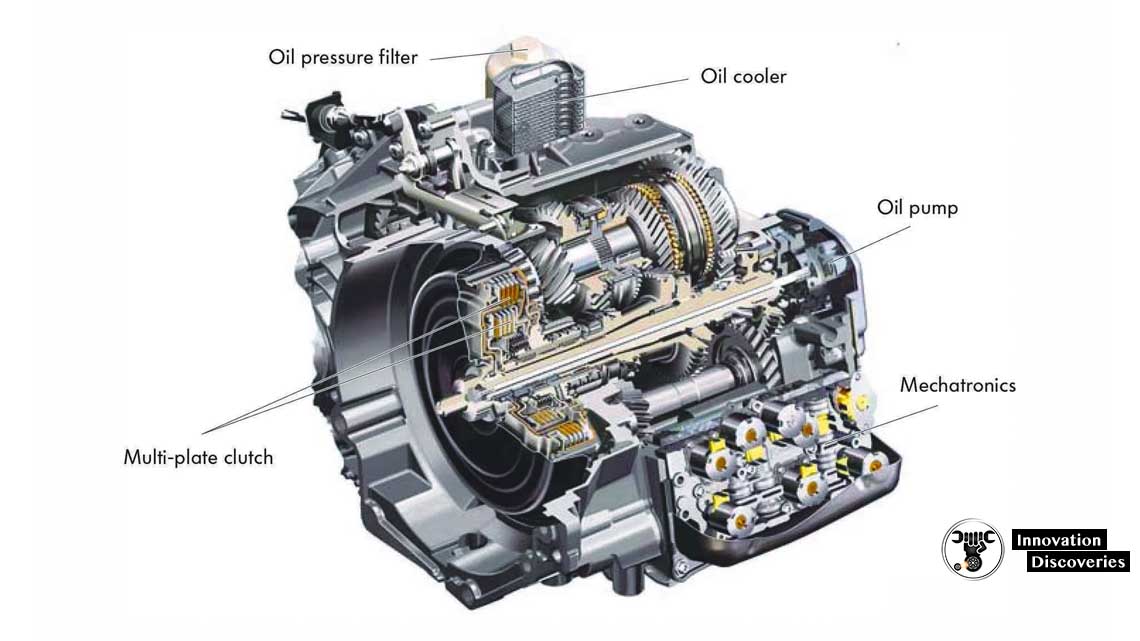
1. Quivering On Engine Start
One of the common issues reported with the 6-speed DSG transmission is a quivering or shaking sensation during engine start. This can be attributed to the mechatronic unit’s failure to engage the clutch smoothly. The issue is often more noticeable when the engine is cold, and it may subside as the transmission and engine warm up. This fault can occur due to various reasons, such as worn clutch components, contaminated transmission fluid, or electronic control unit (ECU) glitches.
To address this fault, it is recommended to have the transmission fluid and filter changed at the specified intervals. Additionally, software updates or reprogramming of the ECU may be necessary to rectify any programming issues. If the problem persists, it is advisable to seek professional assistance to diagnose and repair the fault.
Read More:
- COMMON PARTS OF AN AUTOMATIC TRANSMISSION
- 4 COMMON SYMPTOMS OF AUTOMATIC TRANSMISSION PROBLEMS
- HOW MANUAL GEARBOXES WORK
2. Mechatronic Failure
The mechatronic unit plays a vital role in the operation of the DSG transmission system. It controls the clutch engagement, gear selection, and hydraulic pressure regulation. However, in some cases, the mechatronic unit can experience failures, leading to various transmission-related issues.
Symptoms of mechatronic failure may include harsh or delayed gear shifts, loss of power, or the transmission getting stuck in a particular gear.
Mechatronic failures can occur due to electronic component malfunctions, wear and tear of internal seals and valves, or contamination of the transmission fluid. In such cases, it is necessary to have the mechatronic unit inspected and repaired or replaced by a qualified technician.
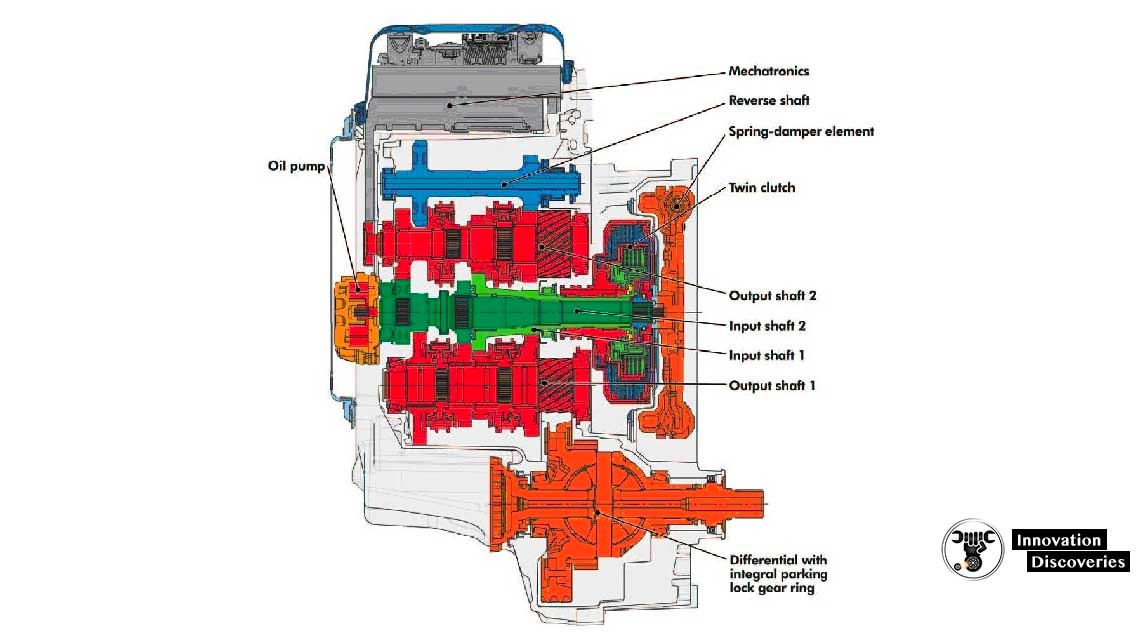
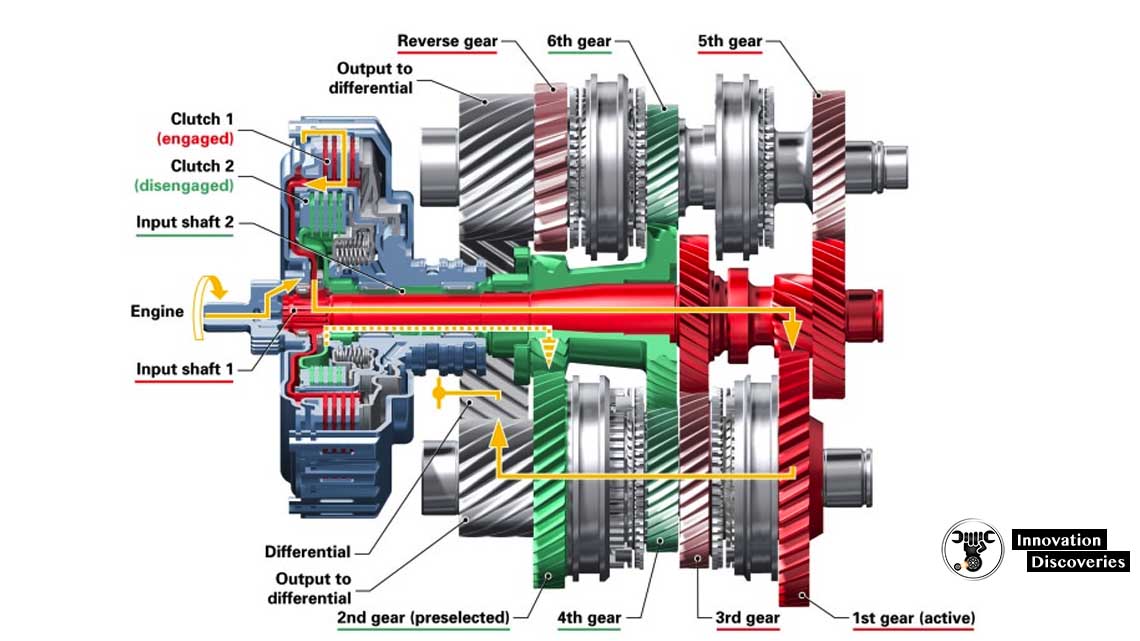
Read More:
- MANUAL OR AUTOMATIC GEARBOX: WHICH IS THE BEST?
- SEALED TRANSMISSIONS: THE COMPREHENSIVE GUIDE
- REASONS FOR TRANSMISSION SHIFTING HARD FROM 1ST TO 2ND GEAR
3. Noisy Bearings
Another common fault that can occur in the 6-speed DSG transmission is noisy bearings. This issue can manifest as whining, grinding, or rumbling sounds coming from the transmission. Noisy bearings can be caused by insufficient lubrication, worn bearings, or contamination of the transmission fluid.
Regular maintenance, including proper fluid changes, can help prevent premature bearing wear. If the bearings become excessively noisy, they may need to be inspected and replaced. It is important to address this fault promptly to prevent further damage to the transmission components.
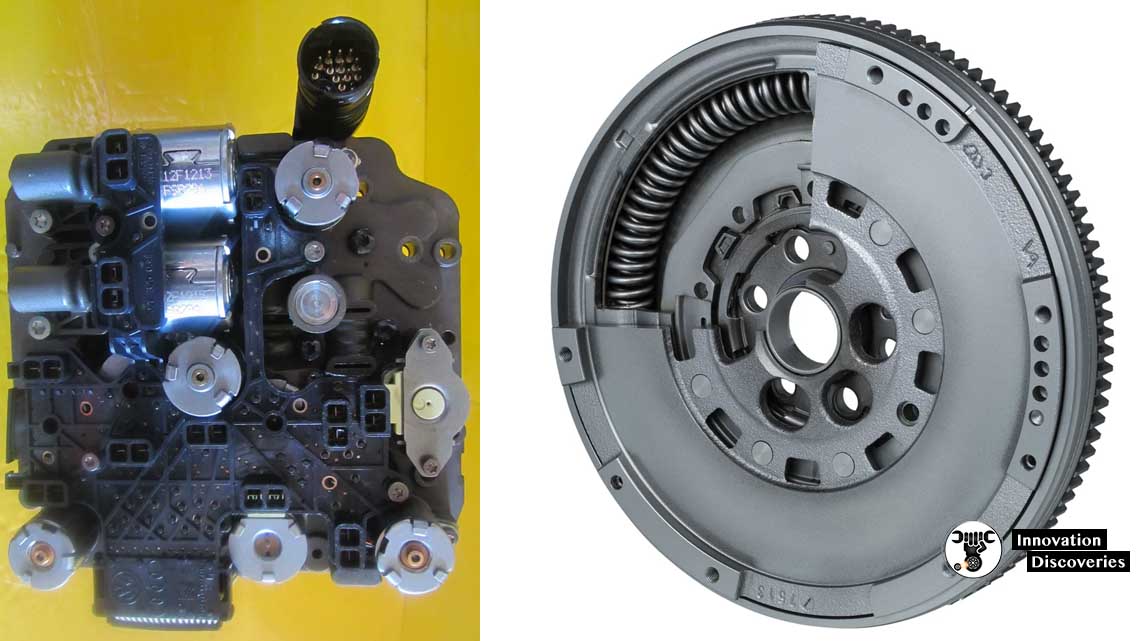
Read More:
- 3 CAUSES OF DRIVE SHAFT NOISE (WHEN TURNING, BRAKING OR IN REVERSE)
- WONDERING “WHY ARE DIESEL ENGINES NOISY?” THE REASONS
- WHAT HAPPENS WHEN YOU SKIP GEAR IN A MANUAL TRANSMISSION?
Conclusion:
The 6-speed DSG transmission system offers a blend of performance and efficiency. However, like any mechanical system, it can develop faults over time. Quivering on engine start, mechatronic failures, and noisy bearings are among the common issues that owners may encounter.
Timely maintenance, including fluid changes and software updates, can help prevent or mitigate these faults. If any of these issues persist, seeking professional assistance from qualified technicians is recommended to diagnose and resolve the problem effectively.
Also, Read:
- DESIGN AND APPLICATION OF THE WORM GEAR | PDF
- CHECKING THE GEARBOX OIL LEVEL, DRAINING AND REFILLING
- HOW TO FIND WHEN YOUR CAR NEEDS A TRANSMISSION FLUSH
Visit Forum
Visit Our Friendly Website


